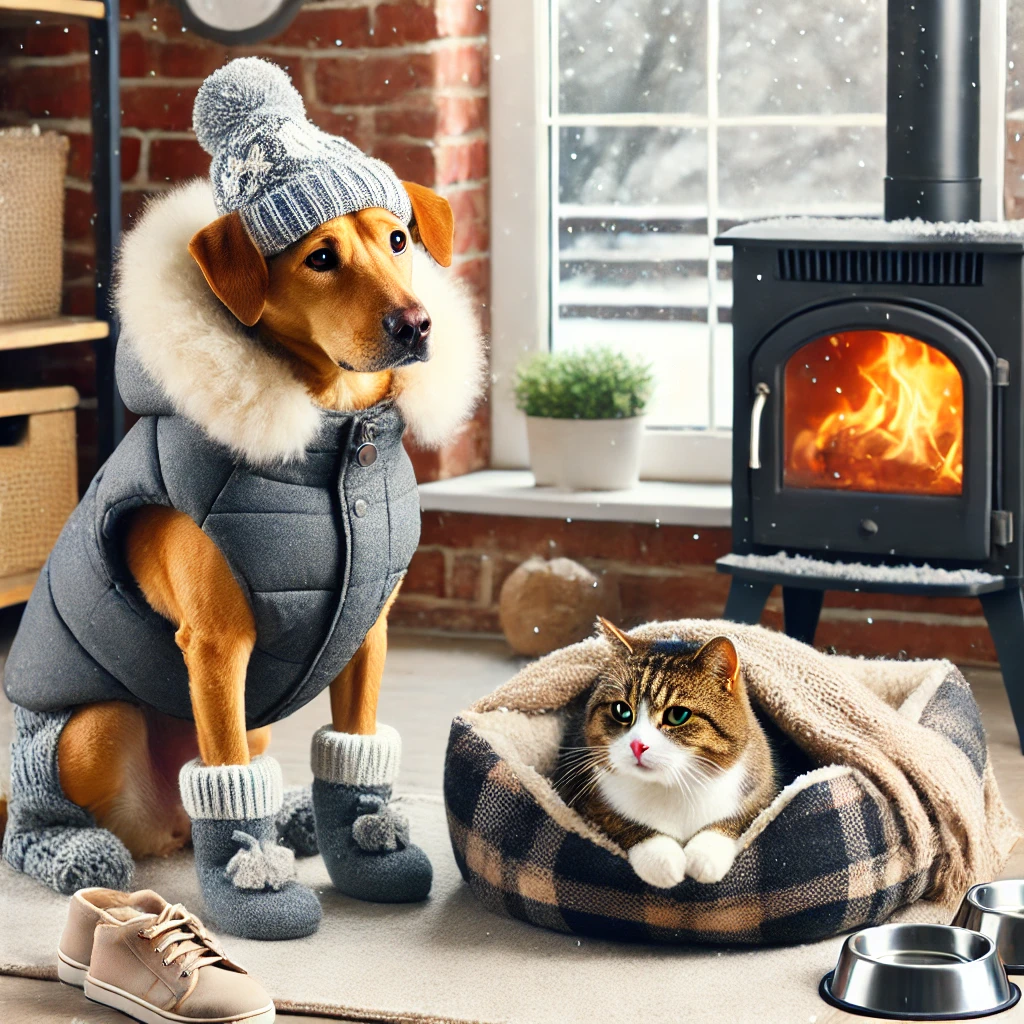
Animal safety in cold weather
Winter can be a magical time of year, but it also brings unique challenges for pet owners. Snow, ice, and freezing temperatures can pose risks to your furry friends if precautions aren’t taken. Ensuring your pet’s safety during the colder months is crucial to keeping them healthy and happy. Here are some essential winter safety tips to help you prioritize animal safety in cold weather.
1. Keep Your Pet Warm
Pets, like humans, can suffer from hypothermia and frostbite. While some animals have thick coats that provide natural insulation, others may need extra help staying warm.
Tips:
- Invest in a cozy sweater or coat for short-haired breeds.
- Limit outdoor time during extreme cold.
- Provide a warm and draft-free space for your pet to rest indoors.
2. Protect Their Paws
Ice, snow, and salt can be harsh on your pet’s paws. Salt and chemical deicers can irritate their skin and may be toxic if ingested.
Tips:
- Use pet-safe deicing products around your home.
- Clean your pet’s paws after walks to remove ice and salt.
- Consider booties for extra paw protection.
3. Provide Proper Nutrition
Cold weather can increase your pet’s energy needs. Outdoor pets, in particular, may require more calories to maintain their body temperature.
Tips:
- Consult your vet to adjust your pet’s diet if necessary.
- Ensure fresh water is always available and check it frequently to prevent freezing.
- Add a little warm water to dry food to make it more appealing on chilly days.
4. Be Mindful of Toxic Hazards
Winter brings additional hazards that can be dangerous to your pet’s health.
Tips:
- Keep antifreeze away from pets; it’s highly toxic but has a sweet taste that may attract them.
- Store winter chemicals like ice melts and windshield fluids securely.
- Watch for signs of poisoning, such as vomiting or lethargy, and contact your vet immediately if you suspect exposure.
5. Provide Safe Outdoor Time
While pets need exercise, extreme cold can be harmful if they’re exposed for too long.
Tips:
- Limit walks during freezing weather and choose the warmest times of the day.
- Avoid letting your pet walk on frozen ponds or lakes, as they may fall through the ice.
- Always supervise outdoor playtime, especially for smaller or less cold-tolerant animals.
6. Watch Out for Hypothermia and Frostbite
Pets are susceptible to cold-related conditions just like humans.
Signs of Hypothermia:
- Shivering
- Lethargy
- Weak pulse
Signs of Frostbite:
- Discolored skin (pale or blue)
- Swelling
- Pain in affected areas
If you notice these symptoms, contact your vet immediately.
7. Create a Cozy Indoor Environment
Make your home a haven from the cold for your pet.
Tips:
- Provide soft, warm bedding away from drafts.
- Use pet-safe space heaters and heating pads with caution.
- Keep your pet entertained with indoor toys and activities when outdoor play isn’t an option.
8. Grooming Is Key
Proper grooming helps your pet stay comfortable and safe in winter.
Tips:
- Keep your pet’s coat clean and brushed to maintain its insulating properties.
- Trim fur between paw pads to reduce ice buildup.
- Avoid over-bathing, as it can strip natural oils that keep their skin protected.
9. Check Your Car
Outdoor cats often seek warmth under car hoods during winter. Always check before starting your vehicle.
Tips:
- Bang on the hood or honk the horn before turning on the ignition.
- Look for paw prints in the snow as a warning sign.
10. Know Your Pet’s Limits
Every pet handles cold weather differently. Factors like age, breed, and health conditions play a significant role in their cold tolerance.
Tips:
- Older pets or those with arthritis may need extra care, as cold weather can worsen joint pain.
- Smaller breeds or those with thin coats may need additional layers.
- Always monitor your pet for signs of discomfort.
Winter doesn’t have to be a stressful season for pet owners. By following these tips and keeping animal safety in cold weather a top priority, you can ensure your pet stays happy, healthy, and safe all winter long.
For more pet care advice and seasonal tips, visit PetPulseDaily.com and stay updated on the best ways to protect your furry friends!
